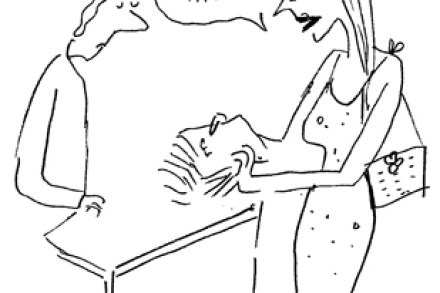Junk, day and night
Travelling the 400 miles from Glasgow to London recently, Theodore Dalrymple noticed that the roadside was littered with food and drink packaging, flapping in the wind like Buddhist prayer flags. Roads didn’t look like that in the boyhood of Dr Dalrymple (b. 1949). Nor are they like that on the Continent. Littering, he concludes, is an unusually British disease. And the reason goes beyond mere national hygiene habits into familiar Dalrymple territory — the fall of man or, more particularly, the fall of British man, and woman. Behind the increase in littering lies a decrease in civilisation: 36 per cent of British children never eat meals at a dining table










